Alberta
Update 23: Northwest Alberta wildfires (June 20 at 4 p.m.)
Hot, dry conditions with strong winds create challenges for firefighting.
June 20, 2019
As fires spread in Mackenzie County, approximately 200 additional people evacuated on Wednesday from the area north of Highway 697, south of the Peace River and west of Steep Hill Creek, also called Range Road 164.
More than 700 evacuees from the Paddle Prairie Metis Settlement can return home today. Additional information for residents is online at https://www.facebook.com/paddleprairie
Approximately 8,500 people are still under evacuation orders.
The following communities issued mandatory evacuation orders this week:
- Beaver First Nation – Boyer River (No. 164) and Child Lake (No. 164A)
- Dene Tha’ First Nation – Bushe River (No. 207)
- Mackenzie County
- The Rocky Lane and High Level area north of the Peace River, south of Highway 58, west of Range Road 150
- The Hamlet of La Crete
- Range Road 164 to Range Road 150, south of the Peace River, north of Highway 697
- Peerless Trout First Nation – Trout Lake community and high-risk persons in the surrounding area.
The following communities remain on evacuation alert and should be ready to leave quickly if the situation changes:
- High Level
- Mackenzie County
- Area west of Range Road 164, south of the Peace River to Township Road 1010, and the Machesis Lake campground
- Bigstone Cree Nation 166 A, B, C and D
Current situation
- Chuckegg Creek wildfire, southwest of High Level, is about 330,000 hectares.
- Jackpot Creek wildfire, north of Lutose, is about 77,500 hectares.
- McMillan Wildfire Complex located in the Slave Lake Forest area, is more than 276,800 hectares.
- Check Alberta Emergency Alerts for more detailed and frequently updated information.
- People driving in fire-affected areas should carry enough fuel, as it may not be readily available.
Visit alberta.ca/emergency for detailed and frequently updated information.
Air quality
- Wildfire smoke is causing poor air quality and reduced visibility at times.
- Parts of northwestern Alberta are under special air quality statements.
- Visit FireSmoke Canada for information and resources about smoke from wildland fires.
Financial supports
- Evacuees should check alberta.ca/emergency for updates on evacuation payment eligibility.
- You may qualify for the evacuation payment if you:
- were living, working or vacationing in the affected area
- were forced to leave due to an evacuation order
- paid for most of your costs to evacuate
- were forced to leave your residence (primary, working or vacationing) due to a mandatory evacuation order.
- Albertans who qualify will receive $1,250 and $500 for each dependent child under 18 living in the same home when the evacuation order was given.
- Apply online through the MyAlberta Evacuation Payment application using a smartphone, device or desktop. Interac e-transfers may take 24 hours to process.
- If you need help applying, contact Alberta Supports to find the nearest centre: Toll-free: 1-877-644-9992 (Monday to Friday, 7:30 a.m. to 8 p.m.) In-person: Find an Alberta Supports Centre.
- More than 11,700 individuals have received evacuee support totalling close to $11.9 million.
Reception and call centres
- All evacuees need to register with an evacuation reception centre even if you have found alternate accommodations.
- Reception centres may assist evacuees in person and/or by phone.
- Mackenzie County evacuees must register at Fort Vermilion – Mackenzie County Office, 4511 46 Avenue, 780-927-3718.
- Evacuees from Trout Lake and high-risk persons in the surrounding area of Peerless Trout First Nation must register their location with Jennifer Auger, 780-649-6553, [email protected]. If you evacuated to Edmonton, register at Edmonton Super 8 Hotel, 16818 118 Avenue.
- The Government of Alberta contact centre is open from 8 a.m. to 6 p.m., Monday to Friday. Call 310-4455.
Insurance information
- Most home and tenant insurance policies provide coverage for living expenses during an evacuation.
- Evacuees should retain all of their receipts for food, accommodation and other related expenses to provide to their insurer.
- Albertans can contact the Insurance Bureau of Canada at 1-844-227-5422 or by email at [email protected]. Information about insurance coverage is available online at ibc.ca/ab/disaster/alberta-wildfire.
Re-entry information
Evacuees can find tips on re-entry by visiting https://www.alberta.ca/emergency.aspx. Information includes making sure all your utilities are working, cleaning up and how to deal with door-to-door salespeople offering services and insurance.
Justice and legal matters
- If you have an appointment with a probation officer in an evacuated area, report to the community corrections office nearest you. Please call 780-427-3109 (to call toll-free, first dial 310-0000) for information.
Boil water advisory
- A boil water advisory is in place for Meander River (Dene Tha’ First Nation).
Health
- Mental health support is available by calling Alberta’s 24-hour help line at 1-877-303-2642, the Addiction Helpline at 1-866-332-2322, or Health Link at 811.
Donations and volunteers
- Check the Mackenzie County Facebook page for an up-to-date list of donations needed and drop-off locations.
- There have been reports that local residents in High Level are being solicited by email or phone for donations in support of firefighters or affected residents. Do not share your personal information with them or donate money.
- When asked for donations (either over the phone, through an email, or in person), ask the canvasser for identification or printed information about the charity.
- If you have concerns about the activities of a charitable organization including its fundraising practices, call Service Alberta: 1-877-427-4088.
Canada Post
- Mail and parcel delivery in certain communities has been affected by the wildfires.
- Canada Post has contingency measures in place to serve residents of these communities.
- Check the Canada Post website for updates.
Other income and social supports
- Evacuees who receive Assured Income for the Severely Handicapped or Income Support benefits by cheque should contact their worker to make arrangements to receive it.
- Call Alberta Supports at 1-877-644-9992 between 7:30 a.m. and 8 p.m., Monday to Friday if you:
- need information on other social supports
- are a contracted service provider, family member or individual needing assistance through the Persons with Developmental Disabilities program
- Evacuees in need of financial assistance for immediate needs can apply for an Income Support program emergency needs allowance. This benefit may cover your accommodation, clothing and other urgent needs. Please call 1-877-644-9992 for more information.
- For information on child intervention and child care, call 1-800-638-0715.
- Employment insurance: evacuees can visit Service Canada online to apply at www.canada.ca/en/services/benefits/ei.html. Use code 4812014812201900.
Health card, driver’s licences, ID cards, birth certificate
- To get a replacement Health Care Insurance Card call 780-427-1432 or toll-free at 310-0000 and then 780-427-1432 when prompted. Your Alberta Personal Health Card can be mailed to a temporary address.
- If driver’s licences, identification cards, and/or birth certificates were left behind during the evacuation, replacement cards and certificates can be ordered free of charge at a registry agent.
Public information
- You can call 310-4455 for more information – Monday to Friday 8 a.m. – 6 p.m.
Related information
Backgrounder: Previous updates
Alberta
Alberta government should eliminate corporate welfare to generate benefits for Albertans
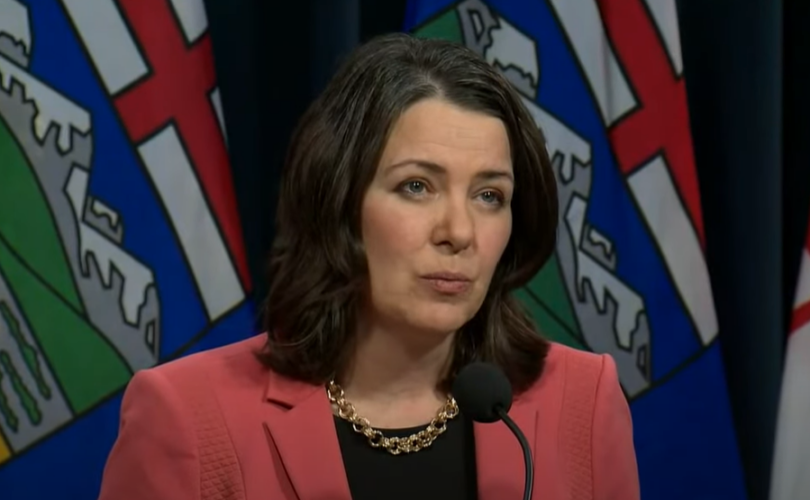
From the Fraser Institute
By Spencer Gudewill and Tegan Hill
Last November, Premier Danielle Smith announced that her government will give up to $1.8 billion in subsidies to Dow Chemicals, which plans to expand a petrochemical project northeast of Edmonton. In other words, $1.8 billion in corporate welfare.
And this is just one example of corporate welfare paid for by Albertans.
According to a recent study published by the Fraser Institute, from 2007 to 2021, the latest year of available data, the Alberta government spent $31.0 billion (inflation-adjusted) on subsidies (a.k.a. corporate welfare) to select firms and businesses, purportedly to help Albertans. And this number excludes other forms of government handouts such as loan guarantees, direct investment and regulatory or tax privileges for particular firms and industries. So the total cost of corporate welfare in Alberta is likely much higher.
Why should Albertans care?
First off, there’s little evidence that corporate welfare generates widespread economic growth or jobs. In fact, evidence suggests the contrary—that subsidies result in a net loss to the economy by shifting resources to less productive sectors or locations (what economists call the “substitution effect”) and/or by keeping businesses alive that are otherwise economically unviable (i.e. “zombie companies”). This misallocation of resources leads to a less efficient, less productive and less prosperous Alberta.
And there are other costs to corporate welfare.
For example, between 2007 and 2019 (the latest year of pre-COVID data), every year on average the Alberta government spent 35 cents (out of every dollar of business income tax revenue it collected) on corporate welfare. Given that workers bear the burden of more than half of any business income tax indirectly through lower wages, if the government reduced business income taxes rather than spend money on corporate welfare, workers could benefit.
Moreover, Premier Smith failed in last month’s provincial budget to provide promised personal income tax relief and create a lower tax bracket for incomes below $60,000 to provide $760 in annual savings for Albertans (on average). But in 2019, after adjusting for inflation, the Alberta government spent $2.4 billion on corporate welfare—equivalent to $1,034 per tax filer. Clearly, instead of subsidizing select businesses, the Smith government could have kept its promise to lower personal income taxes.
Finally, there’s the Heritage Fund, which the Alberta government created almost 50 years ago to save a share of the province’s resource wealth for the future.
In her 2024 budget, Premier Smith earmarked $2.0 billion for the Heritage Fund this fiscal year—almost the exact amount spent on corporate welfare each year (on average) between 2007 and 2019. Put another way, the Alberta government could save twice as much in the Heritage Fund in 2024/25 if it ended corporate welfare, which would help Premier Smith keep her promise to build up the Heritage Fund to between $250 billion and $400 billion by 2050.
By eliminating corporate welfare, the Smith government can create fiscal room to reduce personal and business income taxes, or save more in the Heritage Fund. Any of these options will benefit Albertans far more than wasteful billion-dollar subsidies to favoured firms.
Authors:
Alberta
Official statement from Premier Danielle Smith and Energy Minister Brian Jean on the start-up of the Trans Mountain Pipeline

-
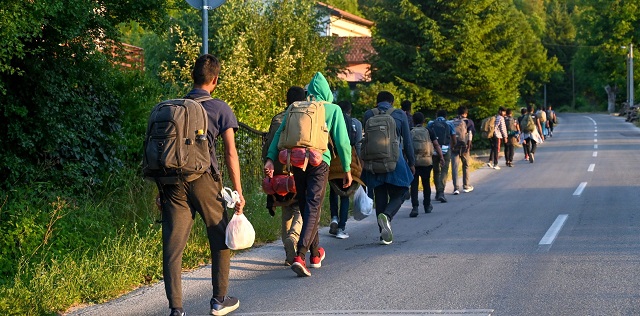
 illegal immigration1 day ago
illegal immigration1 day agoBiden’s DOJ Threatens To Sue Another State For Enforcing Immigration Law
-
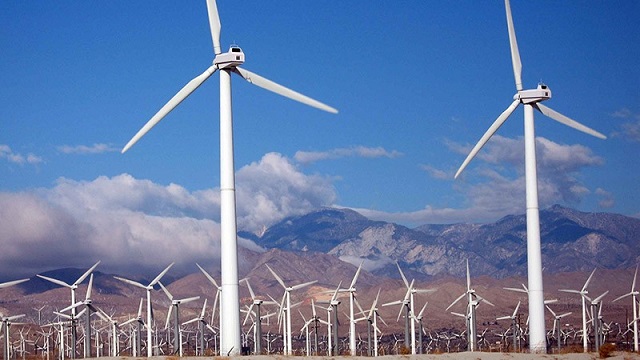
 Economy1 day ago
Economy1 day ago‘Gambling With The Grid’: New Data Highlights Achilles’ Heel Of One Of Biden’s Favorite Green Power Sources
-

 Opinion2 days ago
Opinion2 days agoMisleading polls may produce more damaging federal policies
-

 International2 days ago
International2 days agoTrump campaign says he will pardon Jan. 6 prisoners on ‘case-by-case basis’ if re-elected
-
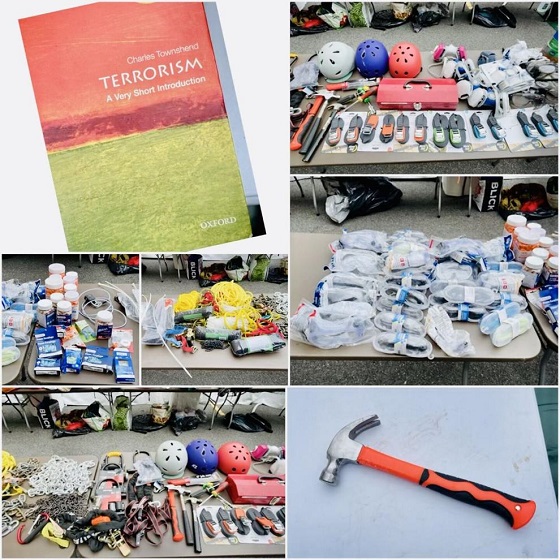
 conflict2 days ago
conflict2 days agoNYPD says protesters had weapons, gas masks and ‘Death to America!’ pamphlets
-
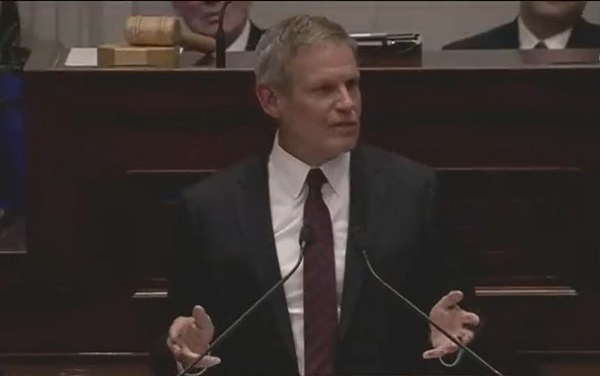
 ESG1 day ago
ESG1 day agoTennessee Taking Lead In Protecting Civil Rights And Free Enterprise—And Stopping Political Debanking
-
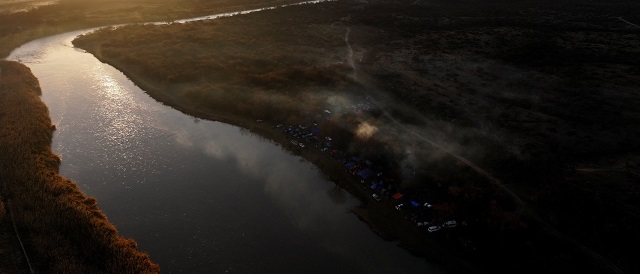
 illegal immigration1 day ago
illegal immigration1 day agoMore Chinese Illegal Migrants Apprehended At Southern Border In Two Days Than In All Of 2021: REPORT
-
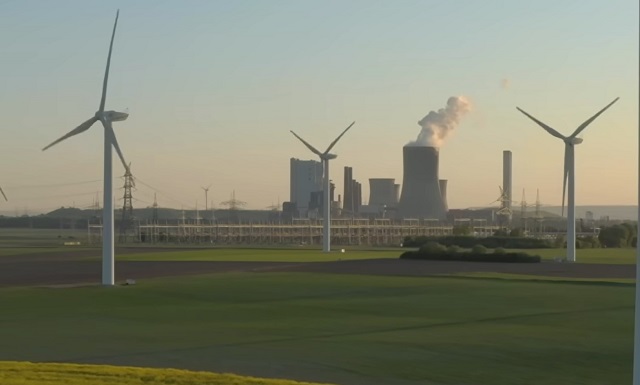
 Energy23 hours ago
Energy23 hours agoMarket Realities Are Throwing Wrench In Biden’s Green Energy Dreams










